
Kashmir’s Floating Vegetable Market
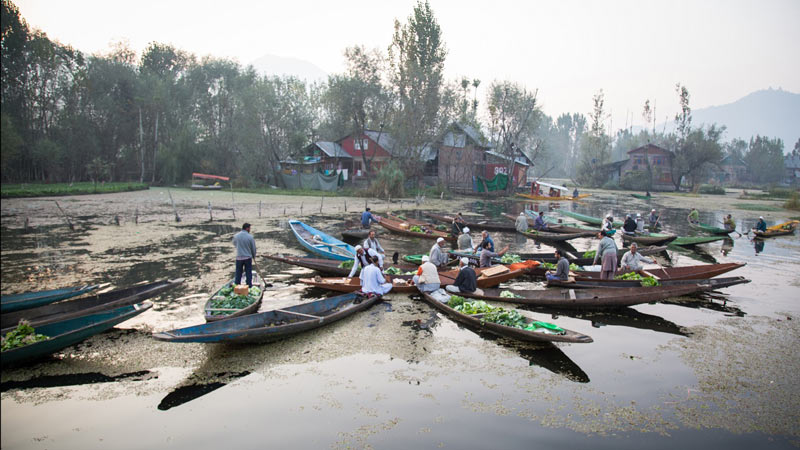
Like the rowing shops in the Mekong Delta in Vietnam or Damnoen Saduak Floating Market in Bangkok, the Kashmir Floating Vegetable Market is a central hub for produce vendors — and it offers a unique glimpse of life in Kashmir.
Kashmir is the northwestern region of the Indian subcontinent. Historically, the term Kashmir was used to refer to the valley lying between the Great Himalayas and the Pir Panjal range. Forming the backdrop of Kashmir, these snow-capped ranges make Kashmir look like a picture straight out of a fairy tale. Dazzling rivers, serene lakes, splendid gardens, flowering meadows, etc are some other features of the landscape of the Kashmir valley. The breath-taking beauty of Kashmir has earned it the name of the “Switzerland of the East”.
The most magnificent district of Kashmir is Srinagar. It’s a combination of business center, holiday resort and the summer capital of the state. Adorned with lush green rice fields, blooming gardens, serene lakes, the unique houseboats and the famous Dal Lake. Dal Lake is Srinagar’s jewel, a vast, mirror-flat sheet of water reflecting the carved wooden balconies of the houseboats and the misty peaks of the Pir Panjal Mountains.
Vegetable Sellers of Dal Lake
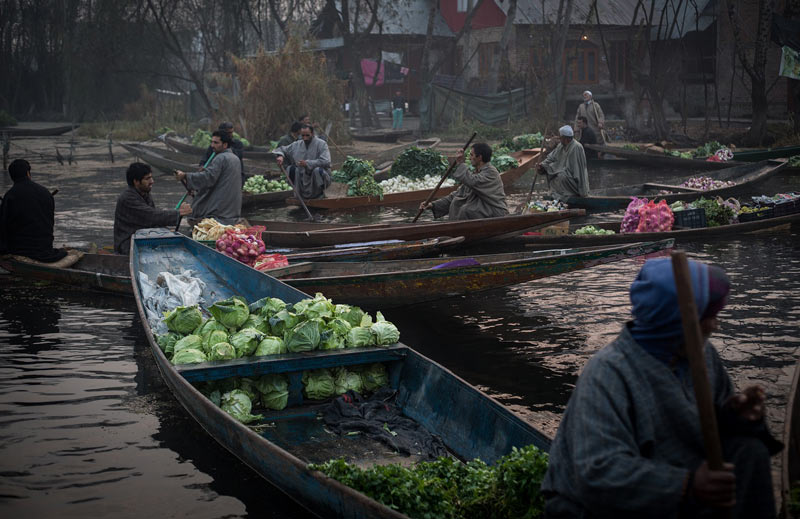
In the wee hours, vegetable cultivators of Dal Lake assemble with fresh loaded vegetables at a place, locally known as “Gudher”, which means Gathering. The market remains open 365 days a year.
Flotillas of gaily painted shikaras (flat-bottomed boat ) skiff around the lake, transporting goods to market, children to school and travelers from houseboat to shore.
Centuries Old Market
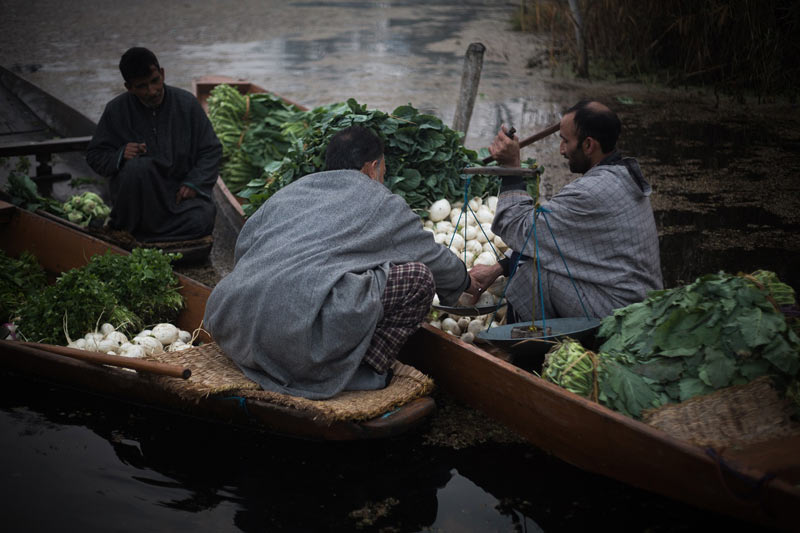
They sell and exchange their vegetables which are later supplied throughout the city and this process continues throughout the year.
The market is centuries old and traces back its root to the time of a great king Zain-ul-Abidin, the eighth sultan of Kashmir. There are no permanent shops on the lake. The floating market first attracted international attention in 1960, when a Japanese photographer featured it in a tourist guide that was published in Japan.
Cultivation of Vegetables Along the Dal
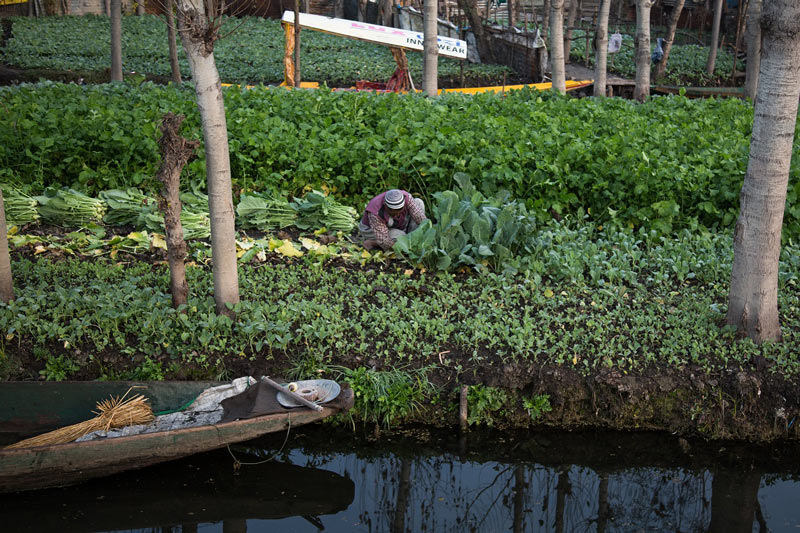
According to the Jammu & Kashmir tourism department, around 10,000 kanals (around 1250 acers) of land along the Dal is used for cultivation of vegetables.
Diverse Ecosystem of Dal Lake
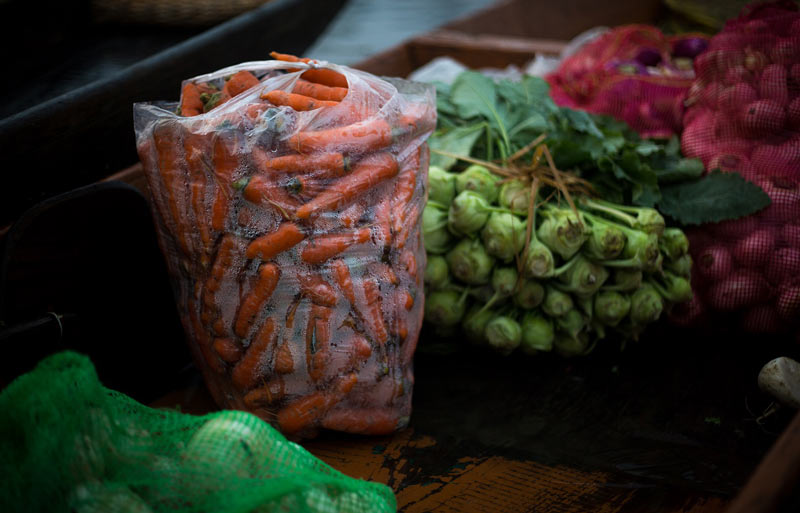
The diverse ecosystem of the lake produces tomatoes, cauliflower, carrots, turnip, aubergine and Kohlrabi in plenty.
Delicacies of Kashmir
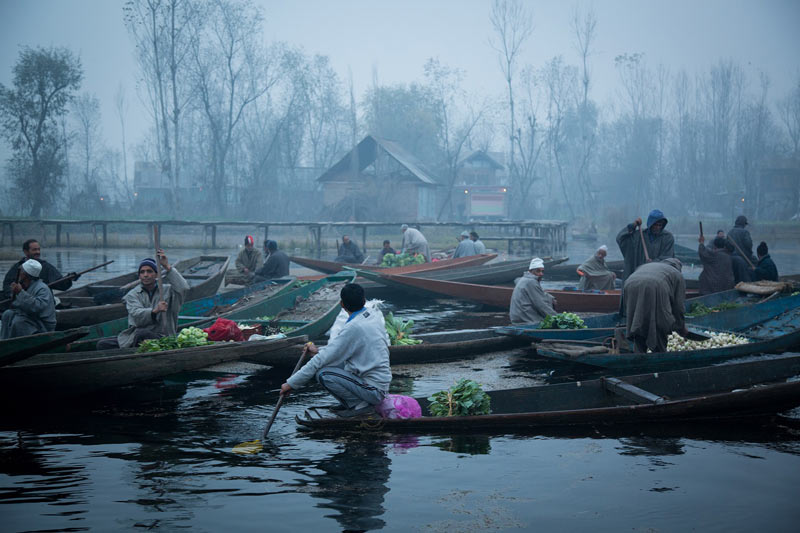
The lake dwellers bring up variety of vegetables, most being famous nadur or the lotus stem, the common delicacy of Kashmir.
The sale and the purchase of vegetables take place between 5 am and to 7 am.
Selling and Trading Vegetables on Dal Lake
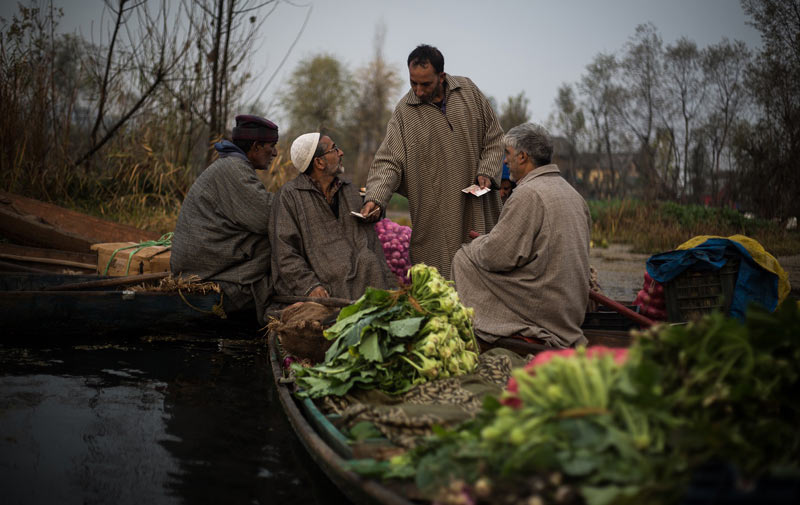
Habibullah, 65, says, “We either take money or exchange other varieties of vegetables. This tradition has been going on for decades.
Fresh Organic Produce
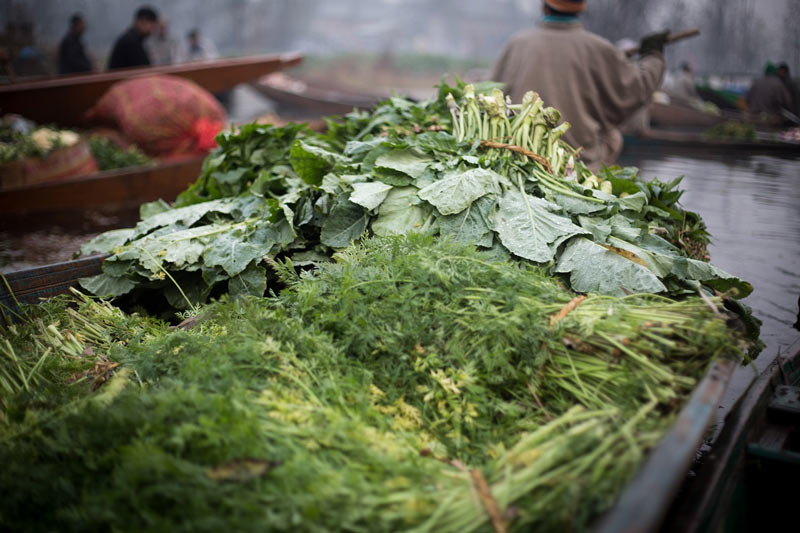
The growers can’t stop boasting about the organic taste because the cultivation take place by using only the natural fertilizers.
Difficult Work
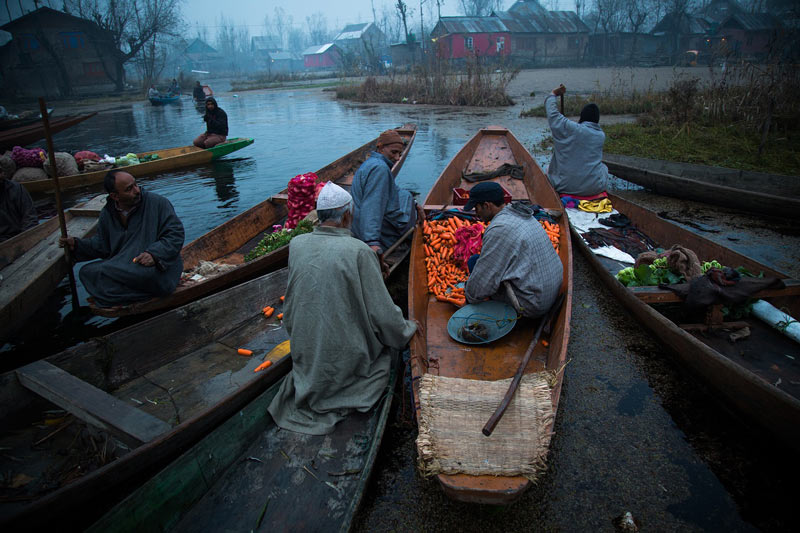
Mohammad Amin, 68, says, “We make about 5 to 8 pounds per day, and sometimes we make nothing, because we just make exchanges. That is why the younger generation doesn’t prefer doing this. We don’t make enough wages and the work is hard.”
A Day’s Business Finished on Dal Lake
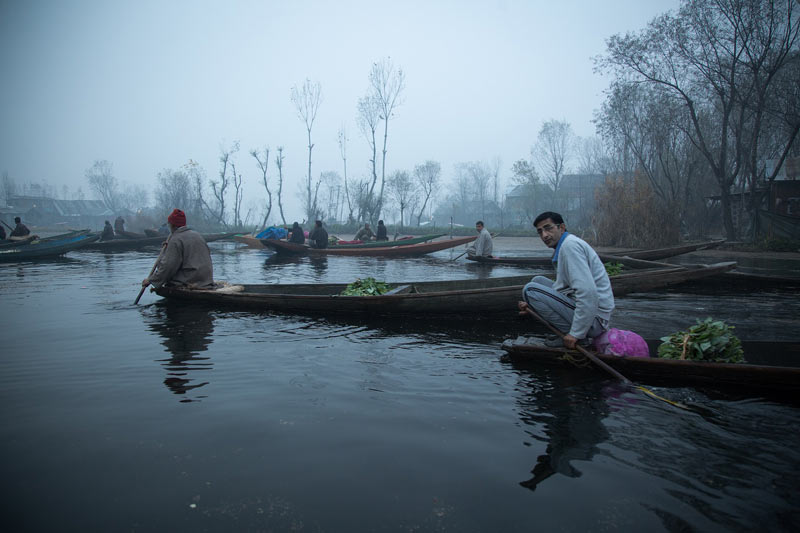
Within hours the delightful scene is gone. The day’s business is finished.
Photojournalist Bio: Bio: Hashim Ahmad Hakeem is a unique and unconventional Kashmiri photo journalist. He is not afraid to artistically and creatively challenge your mind. He doesn’t force, manipulate, or overthink. Talent comes natural when it is a gift from God. A foodie, nature lover, techno geek, and parkour enthusiast that enjoys the simplicity of life, which reflects in all his images. Follow him on Instagram and Twitter @ihashimhakeem.
